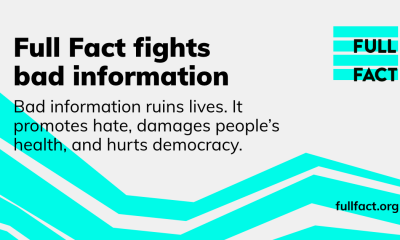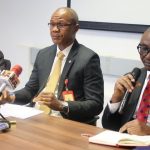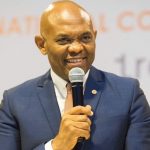Feature/OPED
2023; Why Nigerians May Yield Obedience to Development-Minded Aspirants
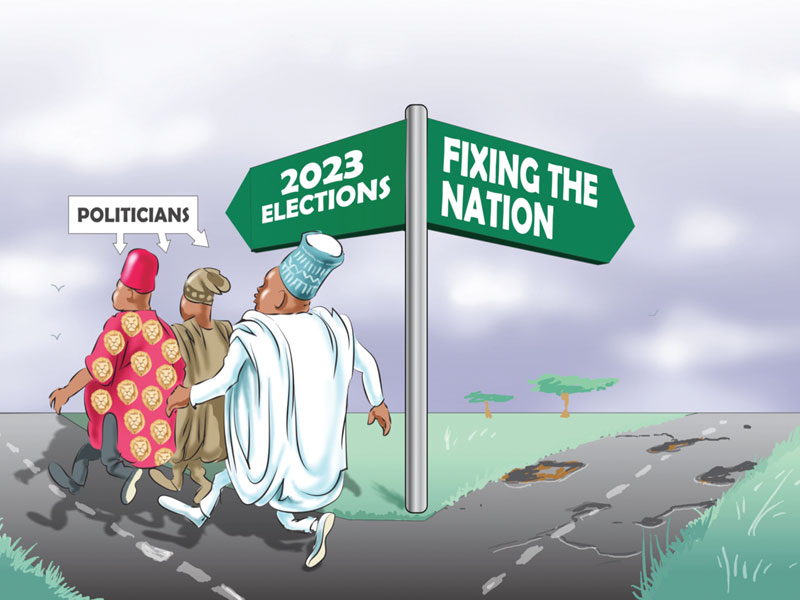
By Jerome-Mario Chijioke Utomi
Taken objectively, there is no doubt that as a people, we derive more comfort, protection and security from our ethnic identity than from our common sense of nationhood. It is equally a statement of fact that during the forthcoming elections, most people will vote along sectional lines, be it religion or ethnicity, corporate world, the academia and other sectors of our national life.
Under this condition, can Nigerians truly say in both concrete and moral terms that they are united in all aspects of nationhood? If not, what is holding the nation back? Is it leadership or the people? As a people, have we made an effort to discover the promoters of a disunited Nigeria or paid a price as an individual or a group to make our national oneness a healthy one?
If leadership is the challenge, what plan/plans do Nigerians have up their sleeves to democratically upturn the present political leadership in the country, and in its place, enthrone leadership that will assist in rescuing, repositioning and rebuilding Nigeria which has been battered by the bad economy, insecurity, unemployment and other social ills by the incompetent and inept leaderships? What measures are the masses putting in place to revamp the nation that has fractured into ‘ethnosyncrasies’ and idiosyncrasies?
While answers to the above are awaited, there are, in the opinion of this intervention, hopeful signs that the forthcoming general elections in the country may produce a different result that will usher in the nation of our dreams.
The signs are there that it is not going to be business as usual. This fact partially explains why young Nigerians have lately become obedient to development-minded Nigerians.
Let’s look at these considerations.
Fundamentally, apart from myriads of socio-political contradictions that have conspired directly and indirectly to give the unenviable tag of a country in constant search of social harmony, justice, equity, equality, and peace, one contending factor/actor that will propel a different outcome is the below-average performance of the current federal government which daily manifests in areas such as; ‘continued state of insecurity in the country, the persistent and ceaseless flow of blood of Nigerians on a daily basis in many parts of Nigeria, the near-collapse of the security situation in Nigeria, their inability to manage the nation’s economy and develop the oil-rich but socioeconomically backwards Niger Delta’. Nigerians, who were initially deceived in 2015 and have remained in darkness, appear to have finally seen the light and known the truth and are getting ready for the 2023 general polls.
As an illustration, the present instinct in the country explains two things; first, apart from the fact that the shout of integrity which hitherto rend the nation’s political space has like light faded, jeer has since overtaken the cheers of political performance while fears have displaced reason -resulting in an entirely separate set of consequences – irrational hatred and division.
Admittedly, none of the current challenges (political or socioeconomic) bedevilling the nation started with this administration.
For instance, corruption is, but a human problem that has existed in some forms. Its fight also dates back to the colonial governments as they (colonial overlords) sufficiently legislated against it in the first criminal code ordinance of 1916 (No15 of 1916) which elaborately made provisions prohibiting official bribery and corruption by persons in the public service and in the judiciary.
Also, upon independence on October 1, 1960, the criminal code against corruption and abuse of office in Nigeria was in sections 98 to 116 and 404 of the code. But while the situation then may look ugly, what is going on now is even worse and frightening.
Nigerians are particularly not happy that the All Progressives Congress (APC) led federal government lavishly promised Nigerians ‘change’ and was voted to provide good and qualitative leadership; elected to bring the nation’s economy out of the woods and were chosen to bring democracy’s dividends to the people. But instead of fulfilling these promises, they visit the masses with cluelessness and utopia. Instead of reviving the comatose economy, they threw it further down into recession and instead of bringing dividends of democracy, they democratized poverty, institutionalized unemployment and governmentalized hopelessness and frustration. They are not authentic leaders but political demagogues.
As noted elsewhere, the Nigerian economy has continued to deteriorate and Nigerians have become numb and accustomed to bad economic news as exemplified by the inconsistent and differential exchange rate regime, high interest rates, unsustainable unemployment figures and borrowing spree some of which have not been applied to important projects, and other bad economic indicators.
The running of our country’s economy continues to go against the provisions of our constitution, which stipulates forcefully that the commanding heights of the economy must not be concentrated in the hands of a few people. The continuous takeover of national assets through dubious (privatization) programmes by politicians and their collaborators are deplorable and clearly against the people of Nigeria. The attempt to disengage governance from public sector control of the economy has only played into the hands of private profiteers of goods and services to the detriment of the Nigerian people.
Another deep-seated reason why Nigerians must act differently in the forthcoming general elections, as doing one thing repeatedly and expecting different results will amount to insanity, is the continued state of insecurity in the country, the persistent and ceaseless flow of Nigerians’ blood on a daily basis in many parts of Nigeria, the near-collapse of the security situation in Nigeria. The strategies to confront terrorists, kidnappers, bandits and other criminals appear to have defiled every formula.
This piece is not alone in this line of belief as a glance at a communiqué issued by one of the major opposition political parties in the country shares similar sentiment. Worthy of note is that this opposition party in question may overtly or in absolute terms not be better, but in that communiqué, the party covertly highlighted what has been on the minds of Nigerians.
It reads in parts; Mr President is unwilling, from his recent comments discountenancing the proposals for state policing, to participate in reviewing the structural problems of tackling insecurity in Nigeria.
While urging Mr President to reconsider his position and consider decentralization and restructuring of the security architecture as the most viable solution, together with proper arming, funding and training requirements for security agencies, it noted that the management of our oil and gas resources, the administration of federation account remittances have remained opaque, confusing and non-transparent.
In addition, the transition to the Nigerian National Petroleum Company (NNPC) Ltd under the Petroleum Industry Act has not been properly streamlined to ensure that the interests of all the tiers of government are protected, consistent with the 1999 Constitution.
On the state of the nation’s economy, the party added; it is clear that the APC government is a massive failure when compared with the records of the previous government. The present administration inherited a $550 billion economy (the largest in Africa), but today, Nigeria is the poverty capital of the world.
In 2015, under the previous government, the exchange rate was N198 per Dollar, it is now under APC almost N500 to a Dollar (now over N600); in 2015, the unemployment rate was 7.3% under the Goodluck Jonathan administration, it is now 33%, one of the highest in the world under APC; in 2015, the pump price of petroleum was N87 per litre, it is now N165 per litre and climbing under APC. debt servicing now under APC takes over 98% of the federal budget.
What about the education sector where over, 10.5 million children are out of school, the highest in the world. Our industries continue to bear the brunt of a negative economic environment. As a result, job losses and unemployment continue to skyrocket, creating a serious case of social dislocation for the vast majority of people.
In the final analysis, the truth, in my view, is that the people seem to have come to terms that behind every major socioeconomic and security failure in the last seven years in the country, lies a failed decision by the government at the centre, and behind every failed decision lies a government that failed its people- a government that did not carry out its duty properly.
Utomi Jerome-Mario is the Programme Coordinator (Media and Public Policy), Social and Economic Justice Advocacy (SEJA), a Lagos-based Non-Governmental Organization (NGO). He can be reached via [email protected]/08032725374
Feature/OPED
How Inside Jobs and Policy Shocks Trigger Nigeria’s Rising Loan Crisis
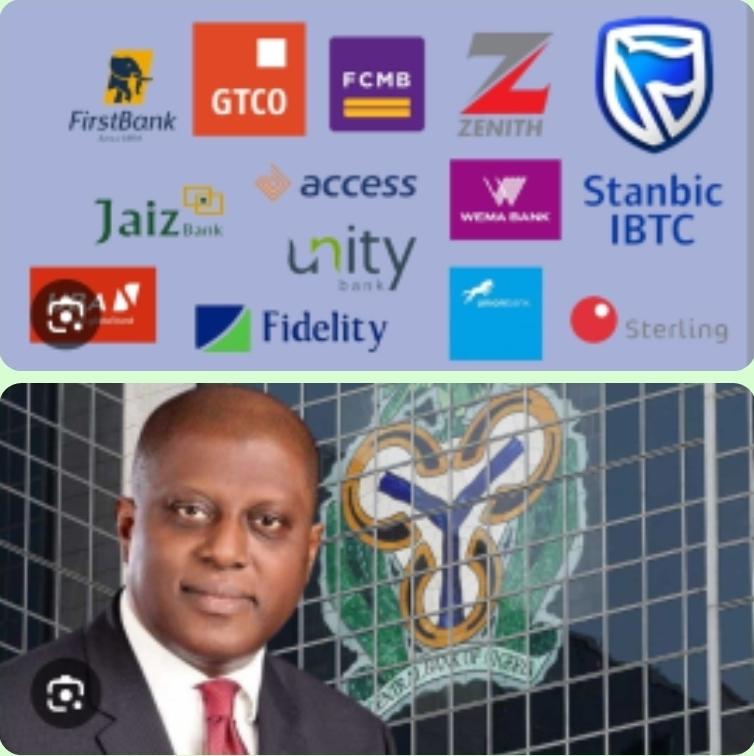
By Blaise Udunze
The latest in the Nigerian banking sector, as banks grapple with the recapitalization compliance deadline, is confronted with a familiar yet unsettling problem that stems from rising loan defaults amid expanding credit. Data from the Central Bank of Nigeria’s (CBN’s) latest macroeconomic outlook of 2025 showed that the banking industry’s Non-Performing Loans ratio climbed to an estimated 7 percent, pushing the sector above the prudential ceiling of 5 percent.
This deterioration has occurred even as banks report improved credit availability and strong loan demand across households and corporates. At first glance of the development, the narrative seems to defy logic in a real sense. However, below this lies a deeper story of macroeconomic strain, policy-induced shocks, and, most worryingly, persistent corporate governance abuses that continue to erode asset quality from within.
To be clear, Nigeria’s current wave of loan defaults cannot be blamed on reckless borrowers alone. The operating environment has become unusually hostile. Inflation, as reported by the National Bureau of Statistics (NBS), recently suggests that headline inflation is cooling and growth indicators show tentative improvement; regrettably, more Nigerians are slipping below the poverty line, eroding household purchasing power and raising operating costs for businesses.
Especially in the small and medium-sized enterprises, though, the economic growth appears positive, but has been uneven and insufficient to offset cost pressures in this space. This has heralded weak consumer demand that has squeezed revenues across retail, manufacturing and services, causing shrinking cash flows and also loan obligations remain fixed or, in many cases, rise. In such conditions, repayment stress is inevitable.
Tight monetary policy has compounded the problem. The CBN’s aggressive rate hikes, aimed at restoring price and exchange-rate stability, have significantly raised lending rates. Variable-rate loans have become more expensive mid-tenure, and businesses that borrowed under lower-rate assumptions now face repayment shocks. Even otherwise viable firms have found themselves pushed into distress as interest expenses consume a growing share of income. Going by the official survey for the last quarter of 2025, it shows that financial pressure on borrowers has intensified as more borrowers are failing to repay loans across all major categories for both secured loans, unsecured loans and corporate loans.
Exchange-rate volatility has delivered another blow. The Naira’s depreciation and FX reforms have sharply increased the burden on borrowers with dollar-denominated loans but Naira income. Import-dependent businesses have seen costs surge, while FX scarcity continues to disrupt production and trade cycles. For many firms, the problem is not poor management but currency mismatch. Loans that were sustainable under a more stable exchange regime have become unserviceable almost overnight.
Layered onto these macro pressures is Nigeria’s weak business environment, which has further worsened the situation, alongside chronic power shortages forcing firms to rely on costly alternatives, logistics challenges and insecurity disrupting supply chains, and regulatory uncertainty complicates planning. More on the burner that has continued to heighten the challenges is the multiple taxation and compliance burdens, further compressing margins. In survival mode, businesses naturally prioritise payrolls, energy, and raw materials over debt service. Defaults, in this context, are often a symptom rather than the disease.
Yet while these systemic pressures explain much of the stress, they do not tell the whole story. A critical and often underemphasised driver of rising loan defaults lies within the banks themselves, most especially corporate governance abuse, which emanates particularly from insider-related lending. This is the uncomfortable truth that Nigeria’s banking sector has struggled to confront decisively.
Corporate governance, at its core, is about discipline, accountability, and oversight. In the banking context, it determines how credit decisions are made, how risks are assessed, and how early warning signs are addressed. Where governance is weak, loan quality inevitably suffers. Nigeria’s history offers painful lessons, especially the banking failures of the 1990s to the post-2009 crisis clean-up, insider lending and boardroom abuses have repeatedly emerged as central culprits.
Recent evidence suggests that the problem has not disappeared. Industry estimates indicate that a significant portion of bad loans remains linked to insider and related-party exposures. Former NDIC officials have disclosed that, historically, directors and insiders accounted for as much as 40 per cent of bad loans in deposit money banks, with a handful of institutions holding the majority of insider-related NPLs. It would be said that governance frameworks have improved since then, but enforcement gaps still persist.
Insider abuse manifests in several ways. Loans are extended to directors, executives, or connected parties with inadequate due diligence. Credit decisions are influenced by relationships rather than repayment capacity, and this has been one of the critical problems as collateral is overvalued, covenants are weak, and stress testing is often superficial. When early signs of distress emerge, enforcement is delayed, restructuring is repeated without fundamental improvement, and recoveries are treated with undue caution to avoid internal embarrassment or exposure.
The result is predictable. These loans default faster and are harder to recover. Worse still, they distort bank balance sheets by crowding out credit to productive sectors. When insiders default, the signal to the wider market is corrosive. Here, credit discipline is optional, and accountability is selective, and it further fuels moral hazard, encouraging strategic defaults even among borrowers who could otherwise repay.
Governance failures also weaken loan recovery processes. Poorly empowered risk and audit committees miss warning signs or fail to act decisively because the system has been built to fail. Legal remedies are pursued slowly, if at all. In an environment where judicial delays already undermine contract enforcement, such reluctance turns manageable problem loans into fully impaired assets. Over time, NPLs accumulate not because recovery is impossible, but because it is poorly pursued.
Compounding these internal weaknesses are government policy shifts and fiscal stress, which have become major external shock absorbers for bank balance sheets. Policy inconsistency has made cash flow planning increasingly difficult for borrowers. For instance, the sudden tax changes or aggressive enforcement drives will definitely alter cost structures overnight. Delays in government payments to contractors starve businesses of liquidity, and this will surely push otherwise solvent firms into default. In theory, although removing fuel subsidies, while economically justified, have often occurred without adequate transition buffers, transmitting immediate cost shocks across energy, transport, and consumer goods sectors.
The banking sector, heavily exposed to government-linked projects and regulated industries, absorbs these shocks directly. Loans tied to this sector showed that the banks are hugely exposed to oil and gas, power, and infrastructure; they are particularly vulnerable when fiscal pressures delay receivables or alter contract economics. For instance, a total of 9 banks’ exposure to the Oil & gas sector increased to N15. 6 trillion in 2024, representing about 94.4per cent increase from N10. 17 trillion reported in 2023 financial year. It is therefore no coincidence that NPL concentrations remain high in these sectors. In effect, fiscal stress is being intermediated through bank balance sheets.
When the CBN ended the special leniency measures known as forbearance in 2025, the real extent of loan stress in the banking industry became much clearer. For a longer time, pandemic-era reliefs allowed banks to renegotiate stressed loans without immediately classifying them as non-performing. While this helped preserve surface stability, it also masked underlying vulnerabilities. With the end of forbearance, many restructured facilities have crystallised as bad loans, pushing the industry NPL ratio above the prudential ceiling. This does not mean risk suddenly increased; it means it is now being recognised.
To the CBN’s credit, transparency has improved as the industry witnessed stricter classification rules and reduced forbearance have forced banks to confront economic truth rather than regulatory convenience. And, despite the challenges, the financial system appears to be generally sound because banks have enough cash to meet obligations and sufficient capital buffers that still exceed regulatory floors, while these buffers are under pressure. Though the ongoing recapitalisation efforts are expected to provide additional buffers.
However, stability should not be confused with health. Rising NPLs, even in a liquid system, carry real consequences. Banks must set aside provisions, eroding profitability and capital. Credit supply tightens as lenders grow cautious, starving the real economy of funding. One known fact is that the moment governance and transparency concerns grow, investors, particularly foreign ones, become less willing to commit capital and this loss of confidence eventually slows down overall economic growth.
The policy response, therefore, must go beyond macroeconomic management. While stabilising inflation and the exchange rate is essential, it is not sufficient. Governance reform within banks must be treated as a systemic priority, not a compliance exercise. Insider lending rules must be enforced rigorously, with real consequences for violations. Boards must be strengthened, not merely in composition but in independence and courage. Risk and audit committees must be empowered to challenge management and act early.
Equally important is addressing the fiscal-banking nexus. The government must recognise that policy volatility and payment delays are not costless. They translate directly into higher credit risk and weaker financial intermediation. A more predictable policy environment, timely settlement of obligations, and credible transition frameworks for major reforms would significantly reduce default risk without a single naira of direct intervention.
The Global Standing Instruction framework, which the CBN continues to promote, can help improve retail and MSME recoveries. But frameworks cannot substitute for culture. Credit discipline begins at the top. When banks lend to themselves without consequence, the entire system pays the price.
Nigeria’s rising loan defaults are not merely an economic statistic; they are a governance signal. They reflect a system under stress, yes, but also one still wrestling with old habits. If recapitalisation is to be meaningful, it must be accompanied by recapitalisation of trust, through transparency, accountability, and consistent policy. Otherwise, the cycle will repeat the same strong balance sheets on paper, weak loans underneath, and another reckoning deferred, but not avoided.
Blaise, a journalist and PR professional, writes from Lagos and can be reached via: [email protected]
Feature/OPED
Donald Trump: Umeagbalasi and the Powers of a Screwdriver Salesman
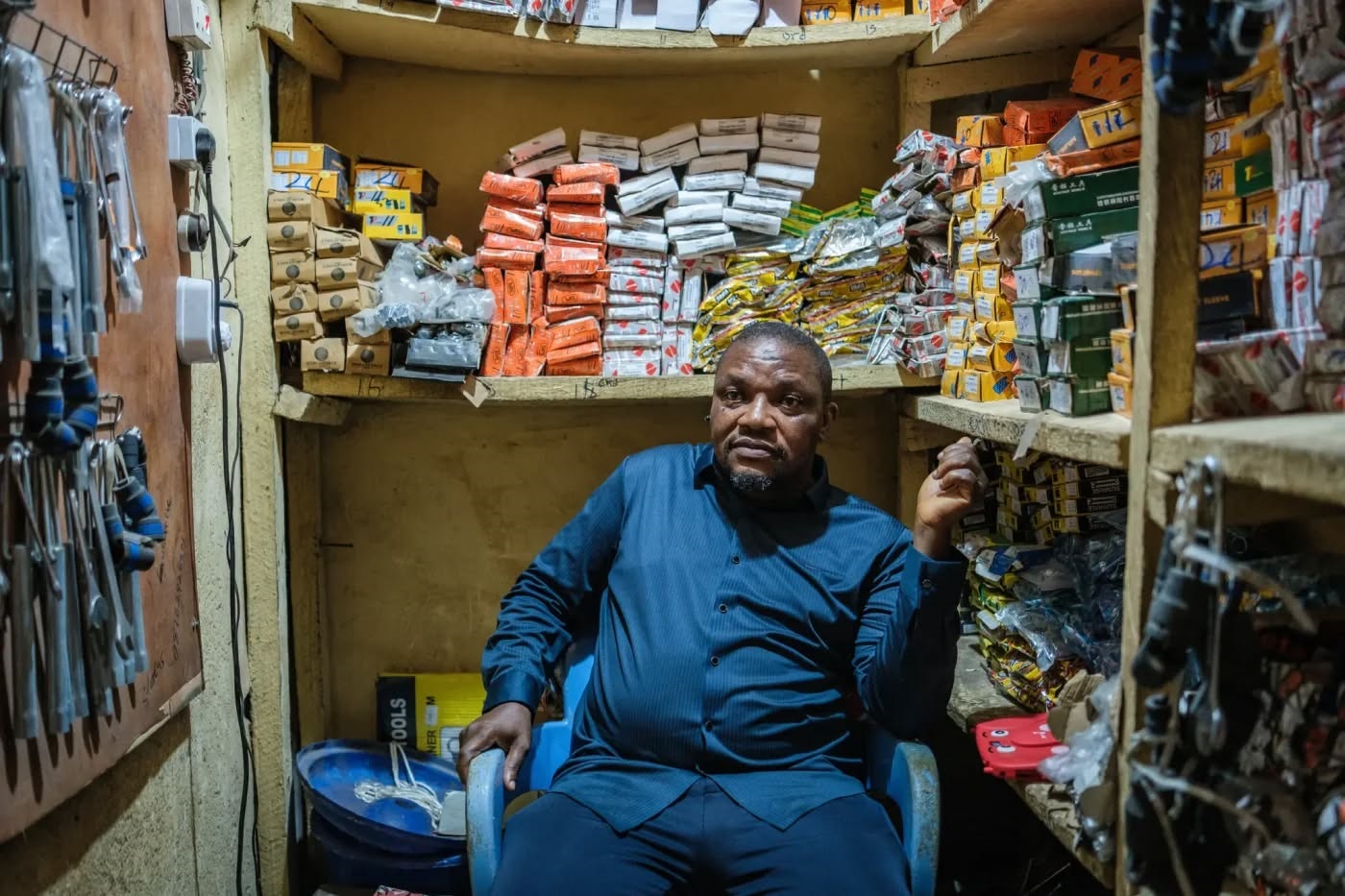
By Jude Chijioke Ndukwe
It is never difficult to see the hand of Esau in the report by The New York Times under the headline, “The Screwdriver Salesman Behind Trump’s Airstrikes in Nigeria” purportedly filed in by one Ruth Maclean.
The mocking description of Mr Emeka Umeagbalasi as a “short man” and the repeated mention of “Onitsha”, a leading commercial town in southeast Nigeria, a region with arguably the highest population and concentration of Christians in the country, in the report send all the signal needed to conclude that the report was not about facts, nor about love for Nigeria, but all about labelling a man and the ethnic group he belongs just to keep promoting a dangerous narrative mischievously and maliciously skewed against the Igbo ethnic stock of Nigeria.
It is also suspect that the same report has been generously and gleefully shared by some local media outlets despite its many flaws and glaring disinformation. These outlets that hardly share reports on Nigeria by foreign media houses have suddenly woken up to share this particular one with so much enthusiasm. “The agenda,” like we say in local parlance, “is truly agendaing.”
The same set of people who accuse Donald Trump of interfering in the internal affairs of Nigeria by deploying airstrikes against terrorists in the country have suddenly embraced The New York Times’ deliberate attempt at grand falsehood against Nigeria just because it suits their aim to pitch the rest of the country against the Igbo.
Such hypocrisy!
For clarity, incidents that led Nigeria being designated a Country of Particular Concern and subsequent follow up with airstrikes by the US started with the lackadaisical attitude government officials approached its fight against terrorism, often refusing to prosecute terrorists arrested but kept granting them pardon and entering into dubious peace deals with them to the angst and frustration of Nigerians.
These actions left victims of terrorism traumatised without any hope of justice and healing. They felt helpless and betrayed by their own government as they watched in despondency and indignation how, day after day, those who mindlessly killed their people, raped their women, hacked their children, including unborn babies, to death right before them, sacked them from their ancestral lands, desecrated and burnt their places of worship, were being handsomely rewarded by government officials at different levels instead of prosecuting them.
They watched in hopelessness, how terrorism kingpins turned billionaires from government “peace deals” while victims wallowed in penury in IDP camps where mass graves serve as a reminder of mass murders and an enduring grave injustice. Worse still is the indecent displays of money from such “peace deals” in the social media by the terrorists, thereby rubbing salt to the injury of their victims.
Left with no option, those directly in the line of fire decided to take their destinies in their own hands. They bypassed a lame and toothless government that seemed more interested in photo ops with terrorists than dealing decisively with them. They took the matter to the US Congress for help before they would be finally exterminated.
Among the first was the Catholic Bishop of Makurdi, Most Rev. Wilfred Chikpa Anagbe, who as far back as July 18, 2023, took his advocacy against “Christian genocide” in Nigeria to the US House Committee on Foreign Affairs, saying among other things that, “The inaction and silence about our plight by both the [Nigerian] government and powerful stakeholders all over the world prompts me to often conclude that there is a conspiracy of silence and a strong desire to just watch the Islamists get away with genocide in Benue State and other parts of Nigeria.”
On February 14, 2024, The US House Foreign Affairs Subcommittee on Africa held a hearing titled “The Future of Freedom in Nigeria”. Among those whose statements and testimony featured in the hearing were Bishop Wilfred Anagbe, Ebenezer Obadare, Oge Onubogu, and Kola Alapinni. From these names, one can easily see that the fight against terrorism and the campaign against “Christian genocide” in Nigeria in the international community transcend ethnicity.
A week before that, the U.S. Congress Members had already “voted to move forward with H. Res. 82, a House resolution calling for greater U.S. action in response to the religious freedom crisis in Nigeria. The House resolution…calls on the U.S. Secretary of State to designate Nigeria as a Country of Particular Concern (CPC) on their list of worst religious freedom offenders for ‘engaging in and tolerating systematic, ongoing, and egregious violations of religious freedom,’” while also highlighting religious prisoners of conscience and the egregious blasphemy laws in Nigeria.
This was in February 2024, long before Trump became President, long before the Tales by Moonlight story of “screwdrivers and airstrikes” peddled today by shameless merchants of conflicts whose “god is their belly”.
In March 2025, Bishop Anagbe continued his advocacy for the defence of his flock and their rescue from marauding terrorists to the US House Committee on Foreign Affairs (Africa Subcommittee) where he once again gave a gory detail of acts of terrorism unleashed on his people without help from government.
Following all these was the intervention of the fearless Rev Ezekiel Dachomo of Plateau State who joined in calling for an end to the killing of Christians through advocacy to the international community. He used his social media pages to highlight cases of mass murders and mass graves of his flock and other Christians killed on the Plateau, while openly calling for US intervention in the country.
We cannot forget Frank Utoo’s poignant and ceaseless advocacy and factual narratives about the killing of Christians in Nigeria, saying on the rooftops what many speak in hushed tones. He is from Yelwata, one of the worst-hit places in Benue State. And so many local and international advocates who have been calling for the intervention of the US in Nigeria’s sorry situation.
If that PR stunt by The New York Times was meant to cover up the ugly security situation in Nigeria and blame the US airstrike on Umeagbalasi, and by extension, his Igbo ethnic stock, then the mission failed abysmally. It rather presented the Nigerian government as purveyors of deceit and merchants of mischief because the same Nigerian government had earlier confirmed to the world that it (and not Umeagbalasi) provided the intelligence upon which the US acted and struck Sokoto with so much fury that sent terrorists scampering to hell like they have never done before. The Nigerian government also confirmed that the airstrike was a joint operation with the US.
The New York Times PR stunt backfired big time and those associated with it are now panting in frustration like dogs that just escaped the jaws of hyenas by the whiskers.
Let me end this piece by making it clear that anyone who gets riled that terrorists are being eliminated in Nigeria, whether by the US or by our local gallant troops, is also a terrorist or a terrorism enabler. Such people should be treated as criminal conspirators in the fight against terrorism.
Meanwhile, Mr Emeka Umeagbalasi, the noble screwdriver salesman from the East, the “short man” who towered above the “Giant of Africa” to reach Trump, the man in Onitsha who moved the hands of Trump in Washington, should celebrate his greater rise to global stardom and the unintended decoration of honours inadvertently bestowed upon him by those who sought to lead him to the guillotine.
Terrorists, their enablers and spin doctors, should learn a very important lesson from Umeagbalasi, that no matter your height and profession, “godliness with contentment is great gain.”
Jude Chijioke Ndukwe sent this piece from Abuja
Feature/OPED
How Policy Flip-Flops Are Making Nigerians Poorer
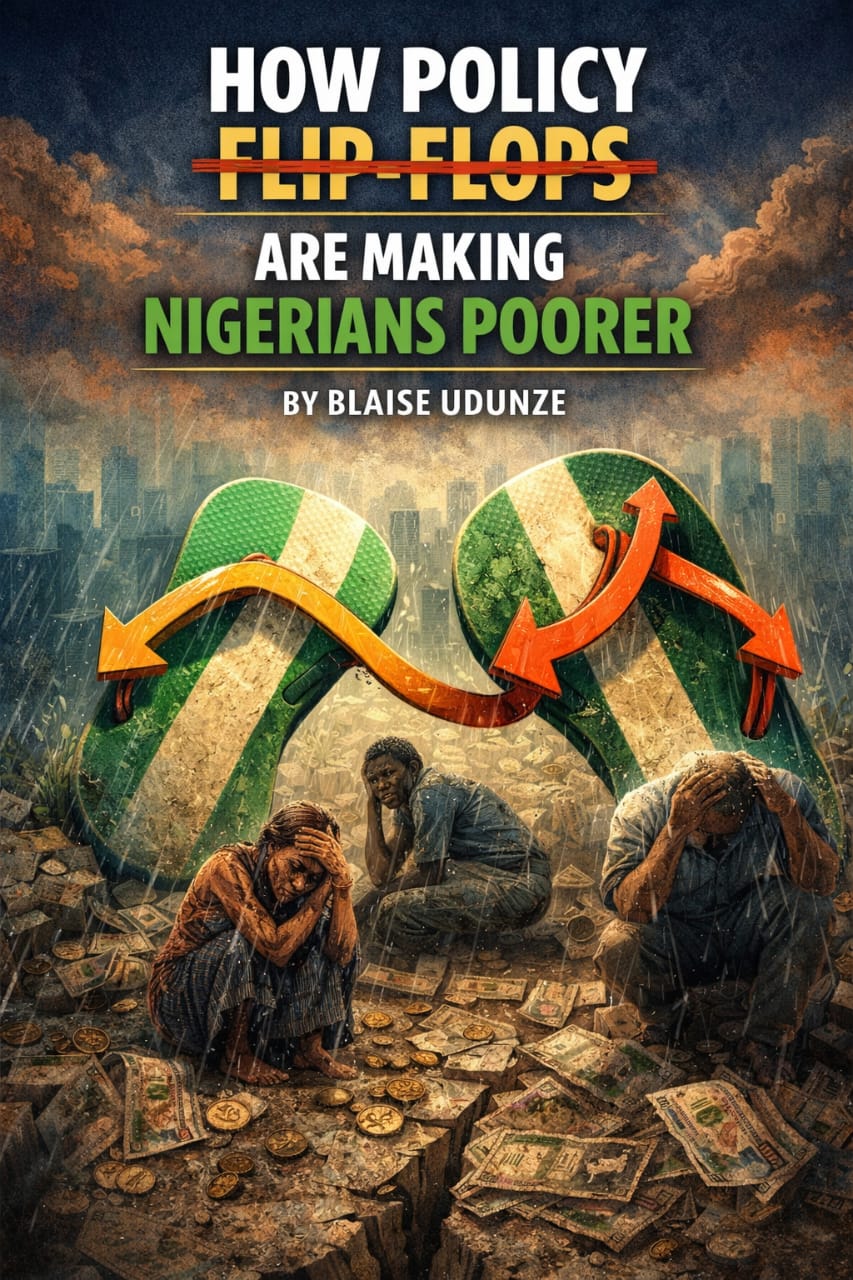
By Blaise Udunze
Nigeria’s deepening poverty crisis is no longer speculative; it is now statistically inevitable. Although the latest Consumer Price Index figures released by the National Bureau of Statistics (NBS) suggest that headline inflation is cooling and growth indicators show tentative improvement, regrettably, more Nigerians are slipping below the poverty line. Reviewing the recent projections from PwC’s Nigeria Economic Outlook 2026, it is alarming, which reveals that no fewer than two million additional Nigerians are expected to fall into poverty next year. This is expected to push the total number of poor people to about 141 million, roughly 62 percent of the population and the highest level ever recorded in the country’s history.
This grim outlook persists despite eight consecutive months of easing inflation and modest economic recovery, and as one can perceive, the contradiction is telling. The fact remains that macroeconomic signals are improving on paper, yet lived reality continues to deteriorate. It is glaring that the widening gap between policy metrics and human outcomes exposes a deeper truth in the sense that Nigeria’s poverty crisis is not simply the product of external shocks or temporary adjustment pains. It is the cumulative result of fragile policymaking, inconsistent reforms, weak institutional coordination, and a failure to sequence economic changes with adequate social protection. With these, it becomes clearer that poverty in Nigeria is no longer an unintended side effect of reform; it is increasingly its most visible outcome as identified today.
It would be recalled that the current administration in 2023, when it assumed office, promised a bold economic reset. At this point, the nation witnessed the fuel subsidy removal, exchange-rate liberalisation, and tighter fiscal discipline being introduced swiftly and applauded internationally for their courage and long-term logic. Notably, these reforms unleashed an economic storm whose aftershocks continue to batter households and currently resulting to the cost of a bag of rice that sold for about N35,000 two years ago now costs between N65,000 and N80,000, while a crate of eggs has risen from N1,200 to over N6,000 and basic staples like garri, tomatoes, and pepper have drifted beyond the reach of ordinary Nigerians. For millions, the economy did not reset; it snapped.
Inflation, often described by economists as a “silent tax,” has punished productivity, mocked thrift, and rewarded speculation.
Reports from the NBS’s December 2025 disclosed that headline inflation eased to 15.15 percent and according to it, this is due to a rebasing of the Consumer Price Index, down sharply from 34.8 percent a year earlier, this statistical moderation has brought little relief to households. Food inflation, at 10.84 percent year-on-year, and a marginal month-on-month decline may look reassuring on spreadsheets, but for families spending 70 to 80 percent of their income on food, such figures feel detached from reality. These figures are not only implausible but also insulting to those whose lives have been torn apart by the skyrocketing prices. With the realities facing the larger populace, Nigeria must be using another mathematics.
Nigeria may have changed its base year, but it has not changed the harsh arithmetic of survival.
PwC’s data underscores this disconnect, as nominal household spending rose by nearly 20 percent in 2025, real household spending contracted by 2.5 percent, reflecting the erosive impact of rising food, transport, and energy costs. The painful part of it, is that Nigerians are spending more money to consume less, and this is to say that growth, hovering around 4 percent, is not strong enough to absorb shocks or lift households meaningfully. As analysts note, Nigeria would require sustained growth of 7 to 9 percent to make a significant dent in poverty. That is to say that anything less merely slows the descent.
The structural weakness of the economy is compounded by policy inconsistency. Nigeria’s economic landscape is littered with abrupt shifts, subsidy removals without buffers, currency reforms without stabilisation mechanisms and trade policies that oscillate between restriction and openness. For households and small businesses, which employ most Nigerians, this unpredictability makes planning impossible. The economy has constantly being faced with price volatility, income shocks, and lost jobs because these are the ripple effects of every policy reversal. Uncertainty itself has become a poverty multiplier.
Nowhere is this fragility more evident than in food systems and rural livelihoods, and this has been where insecurity has merged with policy failure to create a new poverty spiral. Across farmlands in the North and Middle Belt, crops rot unharvested as banditry and insurgency force farmers off their land. Nigeria’s largely agrarian economy has been crippled by violence that disrupts planting cycles, destroys infrastructure, and displaces communities. The result is both income poverty for farmers denied access to their livelihoods and food inflation that erodes purchasing power nationwide.
For record purposes, earlier last year, the NBS Multidimensional Poverty Index showed that 63 percent of Nigerians, about 133 million people, are multidimensionally poor, with poverty heavily concentrated in insecure regions. Findings showed that about 86 million of the poor live in the North, and this is where insecurity is most severe. This record showed that rural poverty stands at 72 percent,c compared to 42 percent in urban areas, and while the states most affected by banditry and insurgency record poverty rates as high as 91 percent. Insecurity is no longer just a security problem; it is one of Nigeria’s most powerful poverty drivers.
The economic cost of insecurity in Nigeria today is staggering. This is because the conservative estimates suggest Nigeria loses about $15 billion annually, which is roughly equivalent to N20 trillion, due to insecurity-induced disruptions across agriculture, trade, manufacturing, and transportation. At the same time, security spending now consumes up to a quarter of the federal budget. In just three years, over N4 trillion has been spent on security, which crowded out investment in health, education, power, and infrastructure. Every naira spent managing perpetual violence is a naira not invested in preventing poverty, even as poverty deepens, the state’s fiscal response reveals a troubling misalignment of priorities. The 2026 federal budget, estimated at N58.47 trillion, ironically allocates just N206.5 billion to projects directly tagged as poverty alleviation and this only amounts to about 0.35 percent of total spending and less than one percent of the capital budget. In a country where over 60 percent of citizens live below the poverty line, this allocation borders on policy negligence.
Worse still, over 96 percent of this already meagre poverty envelope sits under the Service Wide Vote through the National Poverty Reduction with Growth Strategy, largely as recurrent provisions. All ministries, departments, and agencies combined account for barely N6.5 billion in poverty-related projects. This fragmentation reflects a deeper institutional failure, that is to say, poverty reduction exists more as a line item than as a coherent national mission.
Where MDA-level interventions exist, they are largely palliative and scattered, grain distribution in select communities, tricycles and motorcycles for empowerment, and small scale skills acquisition for women and youths. The largest such project, a N2.87 billion tricycle and motorcycle scheme under a federal cooperative college, accounts for nearly half of all MDA-based poverty spending. The fact remains that the various interventions may offer temporary relief, and they do little to address structural drivers of poverty such as job creation, productivity, market access and human capital development.
Even the Ministry of Humanitarian Affairs and Poverty Alleviation illustrates the problem just as its budget jumped sharply in 2026, much of the increase went into administrative and capital items, office furniture, equipment, international travel, retreats, and systems automation rather than direct poverty-fighting programmes. This reflects a familiar Nigerian paradox: institutions grow, but impact shrinks.
International partners have been blunt in their assessments. The World Bank estimates that Nigeria spends just 0.14 percent of GDP on social protection, which is far below the global and regional averages. Only 44 percent of safety-net benefits actually reach the poor, rendering the system inefficient and largely ineffective. PwC similarly warns that without targeted job creation, productivity-focused reforms, and effective social protection, poverty will continue to rise, undermining domestic consumption and straining public finances further.
Fiscal fragility compounds the crisis. The N58.18 trillion 2026 budget carries a deficit of N23.85 trillion, with debt servicing projected at N15.52 trillion, nearly half of expected revenue. The public debt has ballooned to over N152 trillion. The contradiction here is that Nigeria is borrowing not to expand productive capacity but to keep the machinery of government running. The truth is not far-fetched because, as debt crowds out development spending, households are forced to pay privately for public goods, education, healthcare, water, deepening inequality and entrenching poverty across generations.
To be clear, not all signals are negative. This is because opportunities exist if reforms are sustained and properly sequenced. Regional trade under the African Continental Free Trade Area could diversify exports and create jobs. But reform momentum without inclusion and institutional capacity risks becoming another missed opportunity.
This is the central tragedy of Nigeria’s moment. The country is attempting necessary reforms in an environment of weak buffers, fragile institutions, and low trust. Poverty is therefore not accidental. It is the predictable outcome of inconsistency, reforms without protection, stabilisation without security, and budgets without people.
Nigeria faces an undeniable choice. It can continue down a path where fragile policies deepen deprivation and erode trust, or it can build a disciplined, coordinated framework that aligns reforms with social protection, security, and inclusive growth. Poverty is not destiny. But escaping it requires more than courage in reform announcements; it demands consistency, compassion, and the political will to place human welfare at the centre of economic strategy.
Blaise, a journalist and PR professional, writes from Lagos and can be reached via: [email protected]
-

 Feature/OPED6 years ago
Feature/OPED6 years agoDavos was Different this year
-
Travel/Tourism9 years ago
Lagos Seals Western Lodge Hotel In Ikorodu
-

 Showbiz3 years ago
Showbiz3 years agoEstranged Lover Releases Videos of Empress Njamah Bathing
-

 Banking8 years ago
Banking8 years agoSort Codes of GTBank Branches in Nigeria
-

 Economy3 years ago
Economy3 years agoSubsidy Removal: CNG at N130 Per Litre Cheaper Than Petrol—IPMAN
-

 Banking3 years ago
Banking3 years agoFirst Bank Announces Planned Downtime
-

 Banking3 years ago
Banking3 years agoSort Codes of UBA Branches in Nigeria
-

 Sports3 years ago
Sports3 years agoHighest Paid Nigerian Footballer – How Much Do Nigerian Footballers Earn











